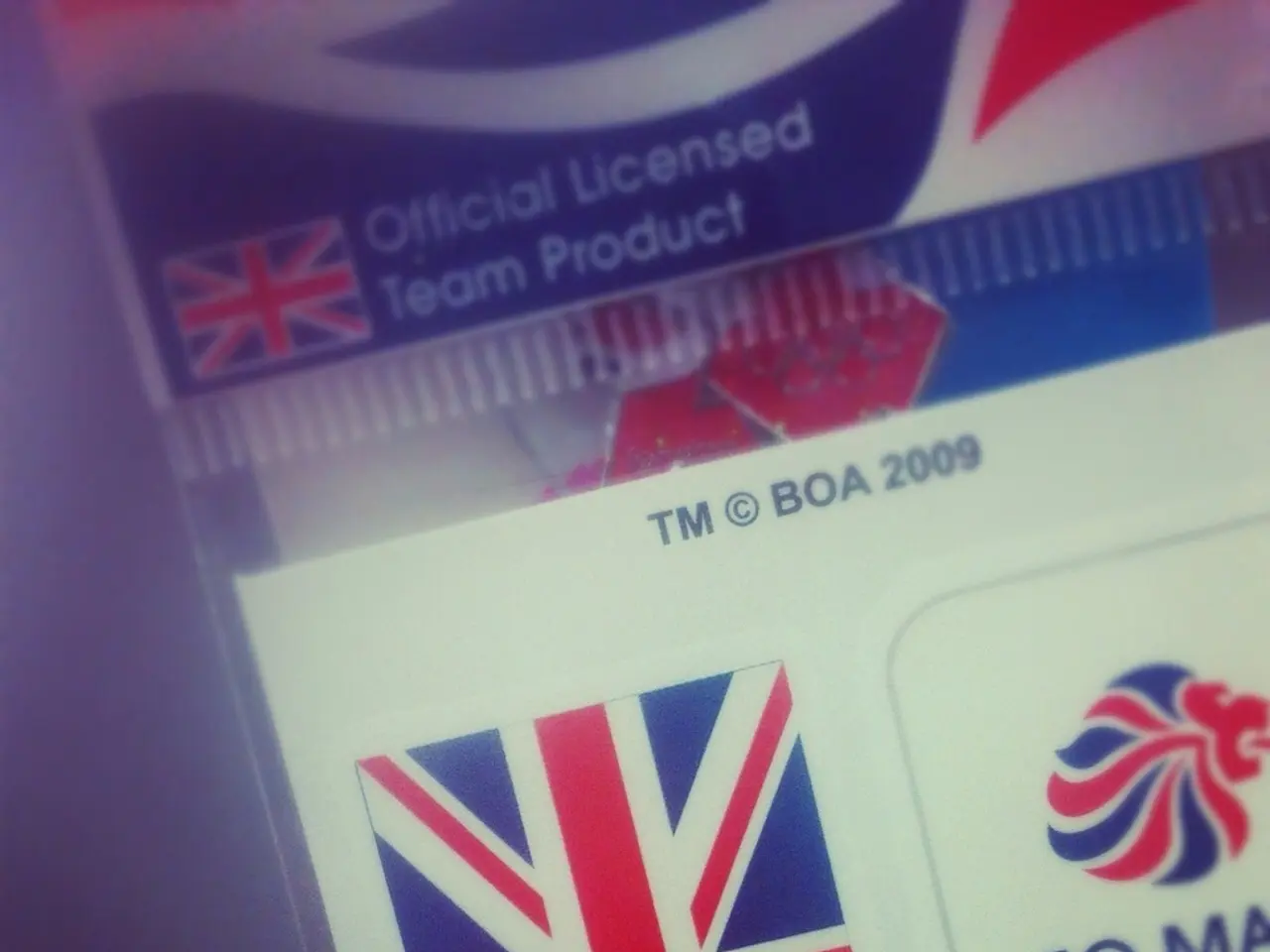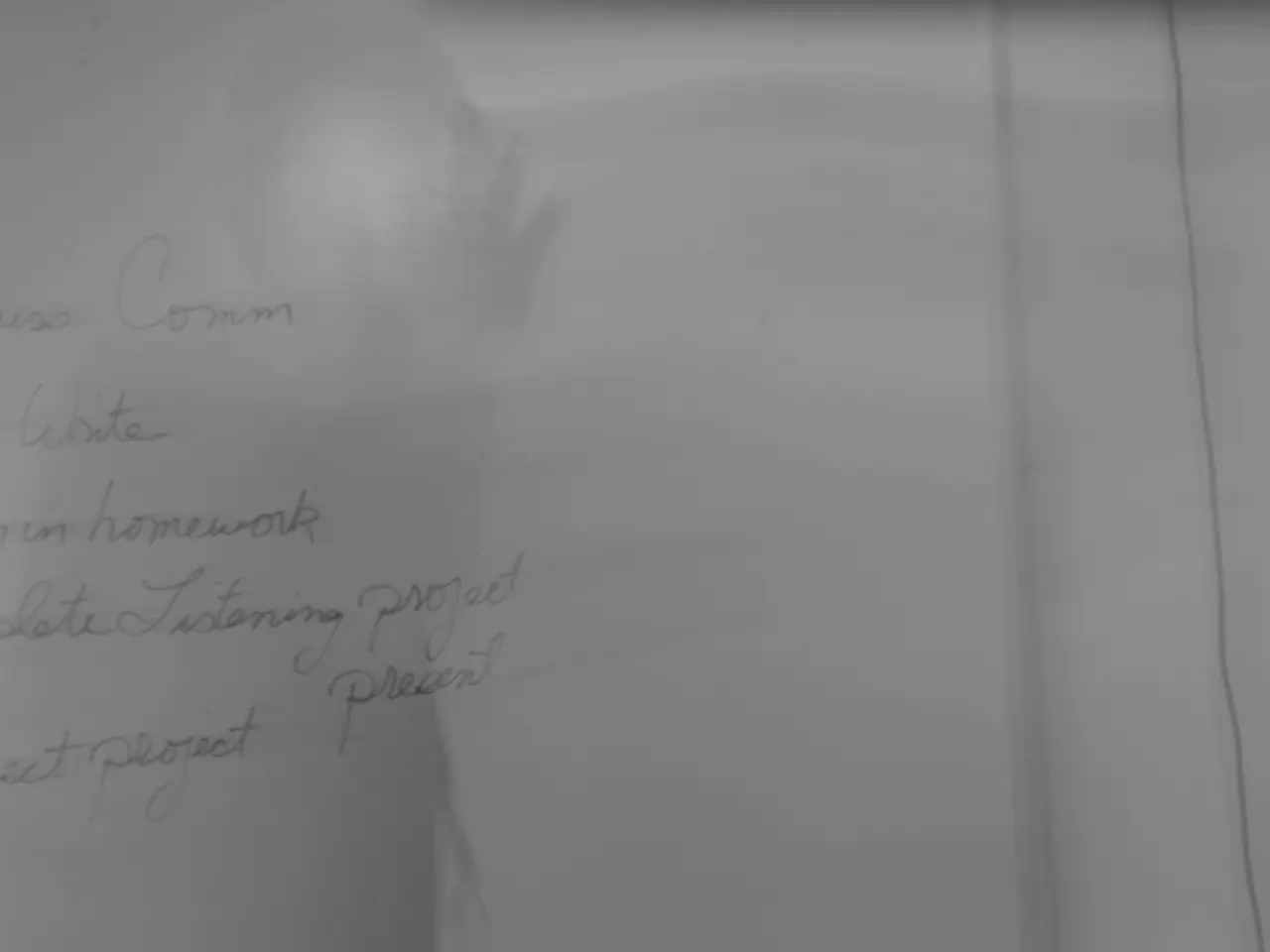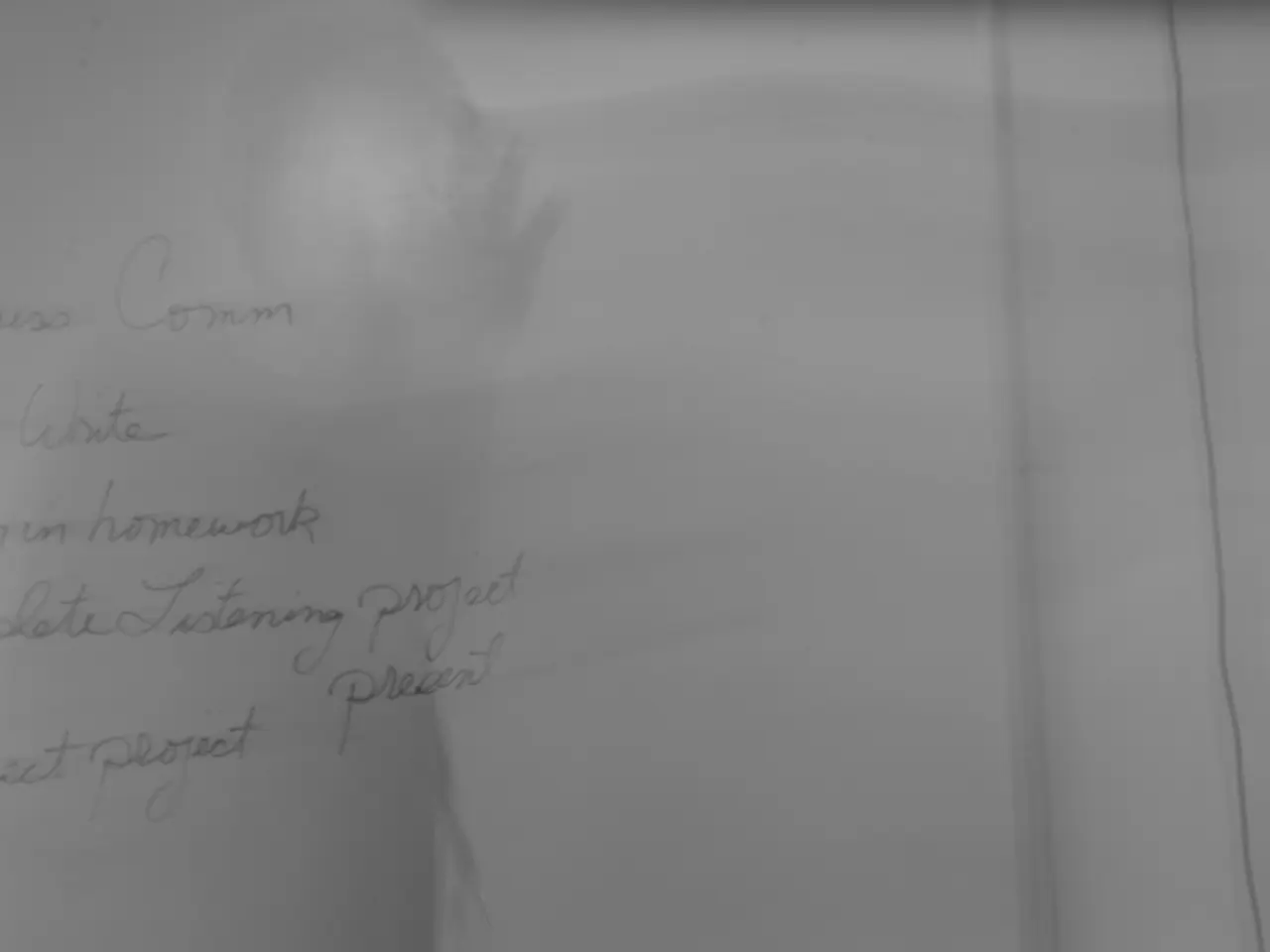Restricted Content Under the Online Safety Act: Five Prohibitions to Note
In the digital age, the debate over free speech and its boundaries has taken a new turn in the UK with the implementation of the Online Safety Act. The Act, designed to protect children from harmful content, has raised significant concerns regarding its impact on free speech, particularly for ordinary users.
Recent reports suggest a two-tier system emerging, with powerful voices enjoying exemptions while everyday users face censorship. A disgruntled user of X discovered that a tweet calling for single-sex toilets was branded too 'sensitive' by the censors, whereas an article headlined 'Keir Suffers Extinction Event' featuring a baby with Starmer's head superimposed on it has been put behind the age wall on X.
Testimony from survivor and campaigner Sammy Woodhouse, detailing her experiences of being raped and abused as a young girl, was censored on X as 'graphic content'. A video of a protester being restrained by police outside an asylum hotel in Leeds has been hidden from UK users on X, and access to online support forums, such as Reddit's r/sexualassault, has been cut off for UK users.
Even educational content is not immune to this censorship. A thread detailing the life of Richard the Lionheart and the Crusades has been suppressed on X. A post by Derek Guy - aka the Menswear Guy - on classic men's tailoring from the 1930s has been 'temporarily' age-gated 'due to local laws' on X.
The Act's age-verification rules have been enforced in the UK, resulting in the internet being darkened for many users. Francisco Goya's 19th-century painting, Saturn Devouring His Son, has been hidden from British users of X.
Critics argue that the Act creates a chilling effect on legitimate online expression and fosters self-censorship. The Act requires online platforms to prevent children from accessing harmful content like pornography and suicide encouragement and to reduce users' risk of encountering illegal content, which has led to stringent age verification requirements that restrict under-18s and any users refusing to verify their age from accessing certain sites.
However, the UK government defends the Act as not compromising political debate or free speech, focusing on harm reduction. The debate over its real impact continues sharply, with an article discussing the controversy surrounding TERF Island and the trans juggernaut, and another critiquing Donald Trump's handling of Brexit negotiations.
Our website, a platform funded primarily by donations from readers, is not immune to these censorship issues. A parliamentary speech made by Tory MP Katie Lam about the rape gangs has been restricted on X, and the Online Safety Act has led to censorship of various content on our website. Only supporters and patrons who donate regularly can comment on our website's articles.
The question remains: Is the Online Safety Act striking the right balance between protecting children and preserving free speech? As the debate rages on, it is crucial to continue discussing the implications of this Act and its impact on the digital landscape in the UK.
References: [1] The Guardian. (2021, September 13). Online Safety Bill: MPs warn of 'chilling effect' on free speech. Retrieved from https://www.theguardian.com/technology/2021/sep/13/online-safety-bill-mps-warn-of-chilling-effect-on-free-speech
[2] The Independent. (2021, September 14). Online Safety Bill: What is it and why is it controversial? Retrieved from https://www.independent.co.uk/tech/online-safety-bill-what-is-it-b1923926.html
[3] The Telegraph. (2021, September 14). Online Safety Bill: What is it and what are the concerns? Retrieved from https://www.telegraph.co.uk/technology/2021/09/14/online-safety-bill-what-it-what-concerns/
[4] The Bureau of Investigative Journalism. (2021, September 16). Online Safety Bill: 'Chilling effect' on free speech, say campaigners. Retrieved from https://www.thebureauinvestigates.com/stories/2021-09-16/online-safety-bill-chilling-effect-on-free-speech-say-campaigners
[5] The Times. (2021, September 15). Online Safety Bill: What is it and why is it controversial? Retrieved from https://www.thetimes.co.uk/article/online-safety-bill-what-is-it-and-why-is-it-controversial-vpd86w9kq
- The Online Safety Act, recently implemented in the UK, has raised concerns about a potential two-tier system, where powerful voices evade censorship while ordinary users face infringement on their free speech.
- Critics argue that the Act, despite the UK government's claim of not compromising political debate or free speech, creates a chilling effect on legitimate online expression and fosters self-censorship.
- In the digital landscape, the Act's age-verification rules and censorship of content have brought about debates over its impact on free speech, particularly for platforms like our website, which may restrict access to certain articles or comments for underage users or those unwilling to verify their age.






